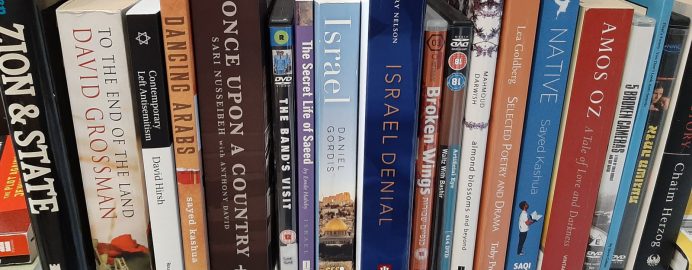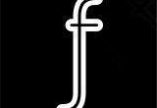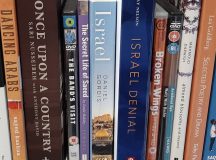Each fortnight Fathom writers have been recommending Israel-related books, films or podcasts to help our readers through the lockdown. This fortnight, the selections of Gil Troy, Shany Mor, Paul Gross, Tirza Kelman, Samuel Taylor and Susie Linfield. Read previous recommendations here, here, here, here, here, here and here.
With these six choices our series comes to an end. All the recommendations will be collected in a free eBook which will be made available to our readers before we take our Summer break from 23 July to 8 September.
Gill Troy recommends Jonathan Haidt’s The Righteous Mind: Why Good People are Divided by Politics and Religion
One particularly illuminating recent book about Zionism doesn’t even mention the Z-word. In his instant-classic The Righteous Mind: Why Good People are Divided by Politics and Religion (2013), Jonathan Haidt aids in our dual mission: fighting anti-Zionism, while – more important – renewing Zionism. Haidt argues that intuitions rule. Humans often improvise reasons to justify gut feelings. Those emotional reactions are like an elephant, reducing reason to a rider who can make adjustments but never dominate.
The pro-Israel community should learn from this: choose your battles. Most Israel-haters allow their antisemitic or anti-Western elephant to stampede toward anti-Zionism, neutralising our lovely, rational, arguments about start-up nation and cherry tomatoes.
‘If you want to change people’s minds, you’ve got to talk to their elephants.’ Palestinians have mastered that with their human rights talk to Progressives. Israel advocates are often too technical, forgetting about the elephants.
Most compelling to me as a Zionist was Haidt’s description of his journey from being a Progressive, judgmental graduate student visiting India, appalled by his hosts’ rituals, to being a Progressive yet sympathetic scholar appreciating how those customs reinforced Indian identity. Viewing those off-putting rituals through the cultural anthropologist Richard Shweder’s lens, Haidt learned that while liberals worship autonomy, traditional societies appreciate community and divinity, as additional ‘ethical pillars.’ Those pillars (Autonomy, Community, and Divinity) — and Haidt’s more elaborate system — frame our modern challenge: moving from a Political Zionism defending and perfecting Israel to Identity Zionism.
Identity Zionism uses our peoplehood platform to root us and inspire us in a confusing world, to evolve from obsessing about Me! My! Now! to considering We! Us! Eternity! too. Understanding that Zionism enhances our liberal search for autonomy by adding community and sanctity, frees Zionism from the defensive advocacy trap, connecting us through our shared heritage to one another and to higher purposes.
Gil Troy is Professor, Distinguished Scholar of North American History at McGill University and author of The Zionist Ideas: Visions for the Jewish Homeland―Then, Now, Tomorrow.
*
Paul Gross recommends Paul Berman’s Terror and Liberalism
There aren’t too many intellectuals around writing in this kind of beautiful yet accessible English prose. In 2003, this extraordinary work was published, opening with quotes from Albert Camus and Sayyid Qutb. The following 200 pages or so argue, with facts, force and finesse, why Camus’ conviction that totalitarian ideologies inevitably lead to terror was dead-on; and why the second man’s theology/ideology fits just that definition.
Berman’s clear-eyed understanding that Islamism is a totalitarian worldview in the spirit of fascism or communism made him plenty of enemies on the American Left – ostensibly his political home – at a time when many regarded George W. Bush as far more dangerous than al-Qaeda, and Israel’s military offensive against the Second Intifada as a greater evil than the wave of suicide terrorism blowing up Israeli buses and cafes on a weekly basis. Berman’s focus is not Israel, but he spends several glorious pages demolishing leftist apologists for Hamas.
Perhaps most valuable for students of the Middle East is his extensive examination of Qutb’s ideology and its astonishing influence on the region since Qutb’s execution by the Egyptian government in 1966. Jihadis from Hamas to al-Qaeda are his ideological heirs. His revolutionary political Islam influenced Ayatollah Khomeini as he developed his own Shi’a brand of theocratic politics, and it became the doctrine propagated by Saudi Arabia’s global network of radical mosques and madrasas.
It’s been 17 years since the book came out, but I still don’t think there’s a better guide for someone wanting to understand where the hell this ideology of terror came from, and why its apologists in the West are so worthy of our contempt.
Paul Gross is Senior Fellow at the Menachem Begin Heritage Center in Jerusalem.
*
Tirza Kelman recommends Abigail Kantorovitch’s ארץ עיר ילדה Scattergories (Hebrew) and Sayed Kashua’s Let It Be Morning
During our COVID-19 lockdown I have been reflecting on two very different books that I read long ago. Each deals with a kind of lockdown. Together they offer us a new point of view on the Israeli experience.
Abigail Kantorovich’s, ארץ עיר ילדה Scattergories (Hebrew) is an Israeli novel that takes place in one special location: a high-risk pregnancy department. Hospitalised for a long period of time, Klil, the protagonist has to handle the situation, with all its technical and emotional complexities, as she confronts her childhood and adolescence, wounded as a third party of the Holocaust, as she puts it. Since she was twelve, she has had no contact with her father, an archaeologist of the Nazi death camps, who exposed her to unfiltered information about the Holocaust, and who she might now meet again. This debut novel is moving and funny. It offers the reader wonderful food for thought in these days when our private and public traumas during lockdown are affecting the way we think about our own situation.
Sayed Kashua’s Let it be Morning was published in 2004 in Hebrew (ויהי בוקר) and in 2006 in English translation. The idea that Israeli citizens could find themselves in lockdown in Arab towns about to become part of a Palestinian state, as part of a diplomatic agreement, was a wild dystopia. In 2020, as this idea reappears as part of the American ‘Deal of the Century’, it is worth going back to this interesting and bitter novel.
Tirza Kelman is is a Yoetzet Halacha (Orthodox female authority in Jewish Law) and runs the Hebrew website of Nishmat Women’s Health and Halacha, and a post-doc at Ben Gurion University of the Negev, The Center for the Study of Conversion and Inter-Religious Encounters.
*
Shany Mor recommends Einat Wilf and Adi Schwartz’s War of Return: How Western Indulgence of the Palestinian Dream Has Obstructed the Path to Peace
Non-Hebrew speakers can finally read Einat Wilf and Adi Schwartz’s essential book. Many new states were born after 1945, and many wars were fought over new states in former imperial possessions. But the international community never carried out a human experiment quite like the one it has performed on the Arab refugees from the 1948 war that ensued when Palestine’s Arabs, joined by neighboring Arab states, engaged in a self-proclaimed war of extermination in an attempt to prevent the establishment of a Jewish state — and then lost.
Wilf and Schwartz manage to put the story of UNRWA and the so-called ‘right of return’ in two proper contexts. The first is the comparative context. Every other case post-war displacement has been handled by the UN High Commissioner on Refugees, which has a strict definition of what constitutes a refugee and has a clear goal of rehabilitating and/or resettling refugees. Only in the case of Palestinian refugees and internally displaced persons from 1948 does a separate agency, UNRWA, exist. But only in this case can you count as a refugee without crossing a single International border (West Bank Palestinians living under Palestinian government count). Only in this case is refugee status maintained despite juridical rehabilitation (you can be a Jordanian citizen and still be a refugee). And only in this case can the status be passed down from generation to generation, long after the war and displacement happened.
The second, even more important context is the place that the issue has in Palestinian claims against Israel. Though mediators and establishment diplomats like to treat it as a symbolic claim, or at least a humanitarian one, it is, as demonstrated by Wilf and Schwartz, a repeated stumbling block in every negotiated process. Far from being something to be bargained away, the ‘right of return’ is something generations of Palestinians have been taught to expect will be realised. And far from being a humanitarian response to the plight of individual refugees and their families, it is a collective ‘right’ that seeks to reverse what is still seen as an enormous crime — the existence in any form of a Jewish state in the Middle East.
Shany Mor is a researcher at the Israel Democracy Institute as well as a postdoctoral fellow at the Herzl Institute for the Study of Zionism at the University of Haifa. He served as a Director for Foreign Policy on the Israeli National Security Council.
*
Samuel Taylor recommends Saul Bellow’s To Jerusalem and Back: A Personal Account
Written in the mid-1970s, Bellow’s agile sketches of Israel’s people, political outlook and cultural particulars are a vivid and absorbing depiction of Israel’s national character. Although many have found his vignette-based style frustrating, I find it exhilarating. To take the title of Calum McColm’s recently-published novel, Israel strikes Bellow as an apeirogon — an object with an infinite number of sides. And there is charm in Bellow’s unwillingness to shy away from Jerusalem’s rich history, or from the multiplicity of perspectives on the Arab-Israeli conflict and intense debates over Israel’s place in the modern world.
Many of Bellow’s observations concerning Israel’s internal and regional politics echo in the present. Bellow develops a relationship with the affable Teddy Kollek, then Mayor of Jerusalem, and Bellow’s anticipation of Kollek’s modernisation of Jerusalem and its division with an Arab ‘East’ as a fait accompli makes fascinating reading. Questions over the US’ commitment to Israel in a period defined by the ‘decline of American prestige and influence’ is also a feature of the book that holds a mirror to contemporary geopolitics. Likewise, Bellow’s documentation of intense debates between right-wingers intent upon a ‘greater Israel’ and worried ‘doves’ willing to bargain for peace through land swaps. Most poignantly, Bellow’s romanticised understanding of Israel as both ‘a garrison state and a cultivated society; both Spartan and Athenian’ seems as much the case today as it was in 1976.
Much of Bellow’s commentary would not be out of place in 2016, forty years after To Jerusalem and Back’s publication. This really is a tremendous work; to its critics, I suggest taking note of the fact Bellow was awarded the 1976 Nobel Prize for Literature on the back of its publication.
*
Susie Linfield recommends Kim Ghattas’s Black Wave and the TV series Unorthodox and Fauda
The best book I’ve recently read on the Middle East — and on why it’s such a cauldron of violent religious extremism and dictatorship — is Kim Ghattas’s Black Wave (Henry Holt). Refreshingly, Ghattas — who was born and raised in Lebanon — does not locate the region’s woes in either Israel or America, or in 1948 or 1967. For Ghattas, 1979 is key: the year of the Iranian Revolution, the Soviet invasion of Afghanistan, and the takeover of Saudi Arabia’s Holy Mosque by Salafists. This is not an original thesis, but Ghattas’s breadth of reporting and research make Black Wave exceptionally informative and compelling. Even if you think you know this story, you will learn a lot from Ghattas, whose hopes for a modern, democratic Middle East animate this book. (I will be reviewing Black Wave in a future issue of Fathom.)
Unorthodox (streaming on Netflix), the story of a young woman’s escape from her Brooklyn Hasidic community — and escape is indeed the word — is based on the memoir by Deborah Feldman, who now lives in Berlin. The Israeli actress Shira Haas, in the title role, is extraordinary. Unorthodox reminds us that religious fundamentalism is alive and well in the Jewish community, too — and that fundamentalism is always the enemy of women’s freedom. The show’s view of Berlin may be slightly rosy (this is a German-American production) — it may be the only city in the world where an Israeli and a Yemenite play music together — but we can all use a bit of optimism right now.
And I am addicted to Fauda, despite the fact that each episode causes my blood pressure to spike. This Israeli show, about the unending war between Shin Bet (it focuses on one band of brothers) and Hamas, spares no one. The toll on the Israeli agents — in terms of their wives, their children, their humanity — is neither underplayed nor overplayed: just presented. As for the Palestinians: almost all of them lead ruined lives. Fauda shows both the necessity and the uselessness of the Israeli war against terror: necessary, because Hamas really does want to destroy Israel; useless, because each Hamas ‘martyr’ is promptly replaced by another. The underlying slyness of the show, however, is how similar — physically, linguistically, etc — the Shin Bet team is to the Palestinians. These are, indeed, the closest of enemies. (Streaming on Netflix)
Susie Linfield is author of The Lion’s Den: Zionism and the Left from Hannah Arendt to Noam Chomsky.


































